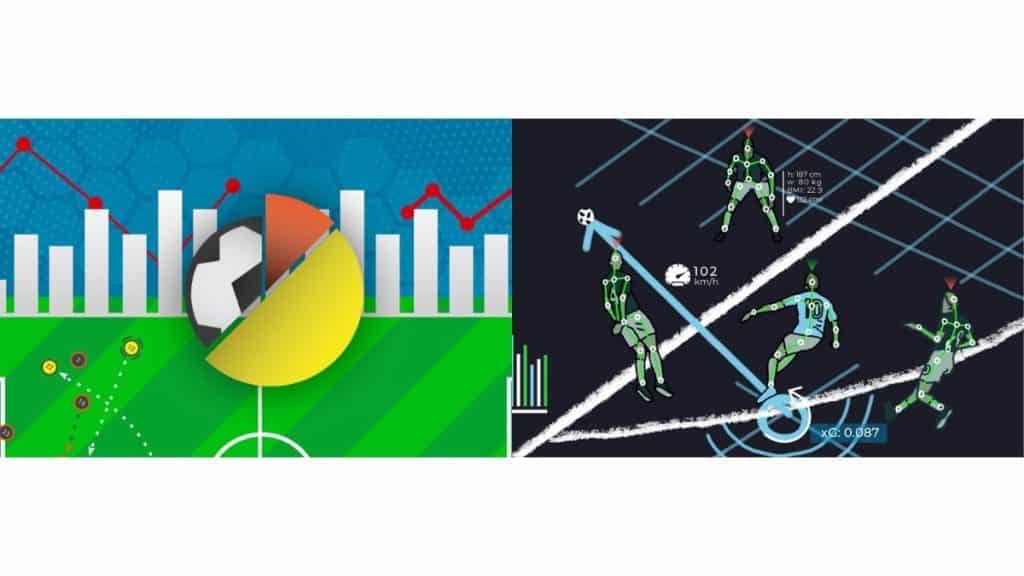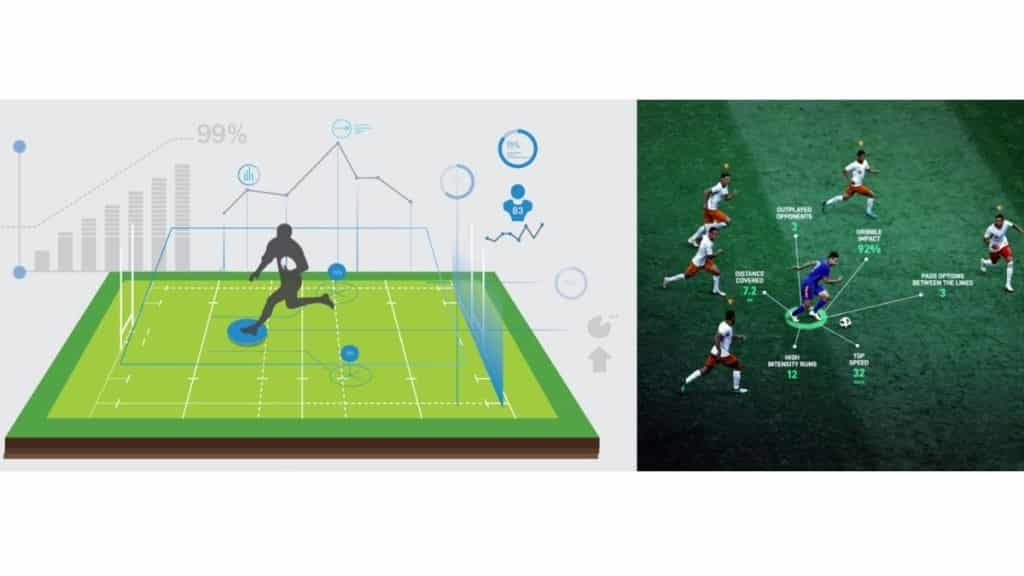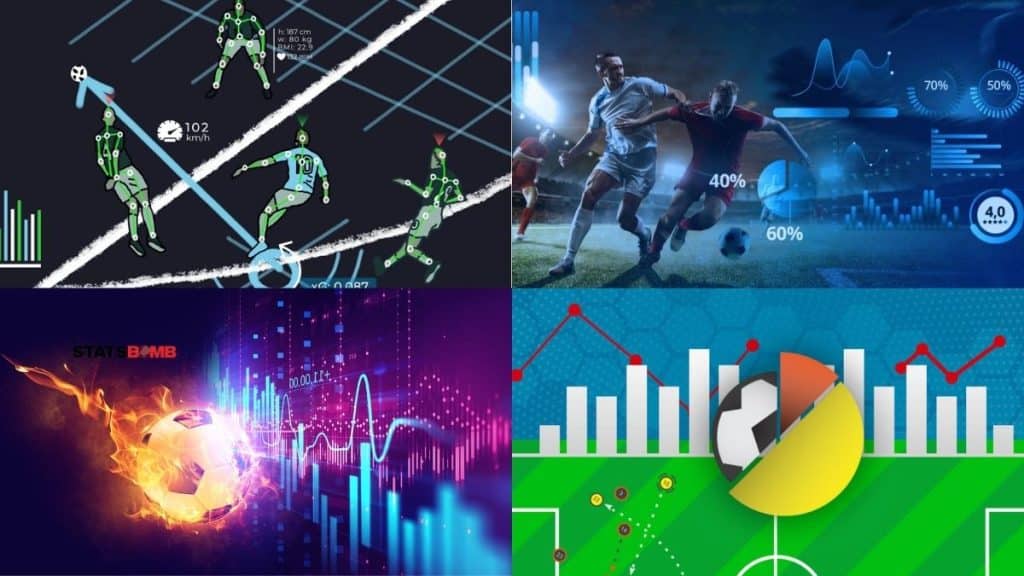Misconceptions about football analytics – Introduction :
With the entry of football analytics into the world of football, misconceptions about football analytics have made their way along with it. From questions regarding its role in football to whether football analytics is actually useful in the sport, the misconceptions about football analytics are numerous. In fact, these misconceptions have made a lot of individuals that wish to understand more about football analytics or even pursue a career as a football analyst hesitant to pursue their interest in the field of analytics.
It is normal for doubters to be there when something new has made its way into an age-old sport like football. But the reality is that football analytics has become a huge part of the sport of football and as football fans, we need to be aware of what exactly football analytics is and the role it plays in football. In this article, we will cover the 3 major misconceptions about football analytics and resources that could help you understand football analytics better if you wish to pursue a career as a football analyst.
“Knowing how to code is a must to become a football analyst” :
Types of football analysts:
There are two main types of football analysts. One type of analyst is the one that breaks down a match or a player while or after watching the match. These kinds of analysts are called video analysts and they are usually a part of the sports media industry and broadcasting. Most teams also have a film breakdown team which consists of a group of video analysts that go through the entire match and pick parts of the match in which they can find areas to improve on or highlight what exactly the opponent’s strategy was at that moment. Hence video analysts are also a huge part of the football industry.
The second type of football analyst is the one that has become a major part of football teams today. The data analyst. A data analyst collects data from matches based on various parameters and breaks it down into forms that can be understood by coaches and executives. This data breakdown is not as simple as goals scored or passes made, but involves parameters like ball progression, progressive passes, etc.
Coding and football analytics :
Data analysts do need to understand coding and how to apply it to football but a major misconception about football analytics is the fact that most people believe that you cannot become a football analyst if you do not know how to code beforehand. That is completely false. With the right mentors to guide you in understanding coding and data analytics, a career as a football analyst is not an impossibility. If you have the focus and drive to become a football analyst along with great mentorship then success as an analyst is just a matter of time.

“There are no job opportunities as a football analyst” :
One of the biggest misconceptions about football analytics is that there are no job opportunities for football analysts. The fact that many people believe that the future is bleak for football analysts is mind-boggling. With the growth of the sports industry and the advancement of sports technology, sports analytics has also been developing into an integral part of the sports industry.
Football Analytics and its importance in football :
Football is the most popular sport in the world and is a part of that growth as well. Football analytics has become an integral part of roster building and coaching in the sport and will definitely continue to play an important role in team decisions moving forward. With advancements in technology, the amount of data that can be collected, analysed and broken down will increase, thereby increasing the importance of football analysts in the football industry. Right now, while the sports industry is in its growing stages, it is the best time to pursue a career as a football analyst. The opportunities are endless and the amount of potential growth is infinite.
Over the past decade, the role of football analytics in football organisations has been huge. In 2021, 19 out of 20 premier league teams employed a player tracking software called Prozone to collect data and then use that data for coaching and other executive decisions. While there needs to be a balance between football analytics and parameters that analytics cannot break down like hard work and will to win, the role of football analytics in the game of football today is undeniable.

“Football analytics does not really help teams ” :
While it is true that football analytics cannot measure parameters like hard work and determination, the notion that football analytics is hence not helpful to football teams is absurd. While there are limitations to what aspects of football, analytics can help collect data on, the positives outweigh the negatives by far.
Data analytics in football has allowed us to further break down the game and get information on passing patterns, pass completion %, areas of the field a player is the most dangerous, etc. This data has given coaches information that they would have to painstakingly obtain by watching films of matches for hours on end. Based on this data coaches can come up with an effective strategy to counter the other team’s strengths and best players.
Similarly, football analytics also gives front office executives information that talent scouts could not necessarily get by watching players play. Executives and coaches do need to understand the limitations of football analytics and take into consideration the various parameters like character and leadership before evaluating a player. This is especially so for executives and the best of them do their homework and base their decisions on a multitude of factors instead of relying solely on football analytics.

Misconceptions about football analytics – Conclusion :
While there are many misconceptions regarding data analytics and its role in the sport of football, the misconceptions mentioned in this article are the 3 major ones that every sports fan that wishes to understand the role of data analytics in football or even pursue a career as a football analyst needs to know. Once you understand what football analytics really is and its role in the sport, you will see how important of a role it plays.
While the article gives you a basic understanding of football analytics, you need to know as much as you can about data analytics and its role in football if you plan on pursuing a career as a football analyst. The best way to do that is to be mentored by a professional football analyst. But where can you find such an expert in the field of analytics?
At Mad About Sports, we have Mr Sushant Rao conducting a 2-day football analytics workshop to help aspiring football analysts pursue their dreams. To know more about the course and receive guidance from a professional in the field visit the link below.
Author : Aniruddh Sunil Kumar



